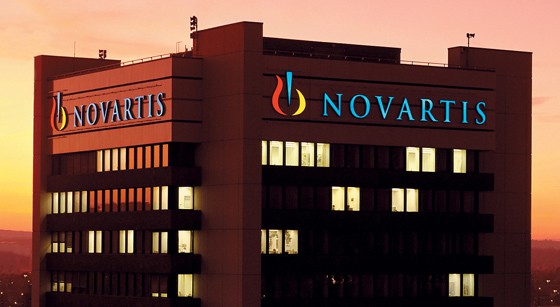
Novartis’ Zykadia can now compete head-to-head in Europe against Pfizer’s Xalkori after winning approval as a first-line therapy for ALK-positive non-small cell lung cancer (NSCLC).
Zykadia (ceritinib) has been cleared for use as a monotherapy in previously-untreated patients with this form of cancer, which accounts for 3-7% of all lung cancer cases. It is only the second ALK inhibitor approved for first-line use in Europe after Xalkori (crizotinib), which got a green light from the EMA for previously-untreated patients in 2015.
Zykadia’s approval is based on the results of the ADCEND-4 trial, which showed a 45% reduction in the risk of disease progression with Zykadia compared to chemotherapy, with median progression-free survival (PFS) of 16.6 months and 8.1 months, respectively. Novartis won US approval for first-line use of Zykadia on the back of those trial data last month.
For patients having multiple agents emerging for front- and later-line therapy is good news, and in just five years the standard therapy has evolved from cytotoxic chemotherapy to Xalkori and now to second-generation targeted therapy.
Zykadia is one of a series of new ALK inhibitors that are deemed to be more potent than crizotinib, penetrate into the brain more readily and have activity against the most common crizotinib resistance mutations.
Among these Roche’s Alecensa (alectinib) seems to be winning the marketing war among the new-generation ALK inhibitors, particularly as it has greater tolerability than Zykadia – which has to be dosed on an empty stomach and causes gastrointestinal side effects – and seems to cross the blood-brain barrier more readily, which roughly a quarter of ALK-positive NSCLC patients have brain metastases at diagnosis, and that increases to around half a year later.
Alecensa outperformed Xalkori in the head-to-head ALEX trial reported earlier this year. It is already approved for first-line ALK-positive NSCLC in Japan and is heading for regulatory filings in the US and Europe later this year, so Novartis has a window of opportunity to exploit with Zykadia in the first-line setting.
However, Alecensa sales more than doubled to almost $70m in the first quarter, while Zykadia – which made $91m last year for Novartis – no longer features among its top oncology products. For comparison, Pfizer reported Xalkori first-quarter sales of $142m, up 2%.
A third entrant into the market – Takeda’s Alunbrig (brigatinib) – was given accelerated approval by the FDA as a second-line therapy a few weeks ago. Some analysts have predicted that after Alecensa gains traction in the first-line setting, Alunbrig will make gains as a second-line therapy putting pressure on Xalkori and Zykadia.




